Qingwei Wang
PlantCamo: Plant Camouflage Detection
Oct 23, 2024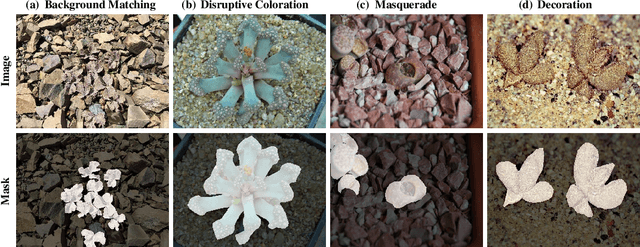
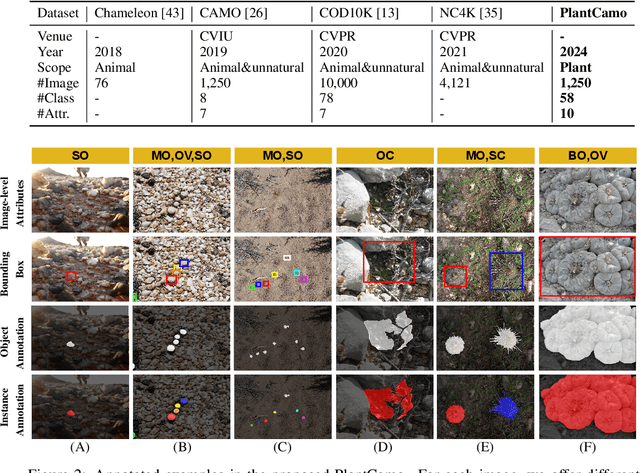

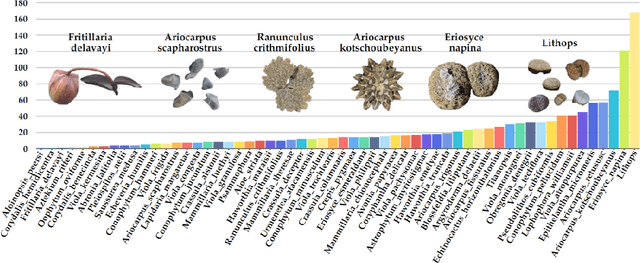
Abstract:Camouflaged Object Detection (COD) aims to detect objects with camouflaged properties. Although previous studies have focused on natural (animals and insects) and unnatural (artistic and synthetic) camouflage detection, plant camouflage has been neglected. However, plant camouflage plays a vital role in natural camouflage. Therefore, this paper introduces a new challenging problem of Plant Camouflage Detection (PCD). To address this problem, we introduce the PlantCamo dataset, which comprises 1,250 images with camouflaged plants representing 58 object categories in various natural scenes. To investigate the current status of plant camouflage detection, we conduct a large-scale benchmark study using 20+ cutting-edge COD models on the proposed dataset. Due to the unique characteristics of plant camouflage, including holes and irregular borders, we developed a new framework, named PCNet, dedicated to PCD. Our PCNet surpasses performance thanks to its multi-scale global feature enhancement and refinement. Finally, we discuss the potential applications and insights, hoping this work fills the gap in fine-grained COD research and facilitates further intelligent ecology research. All resources will be available on https://github.com/yjybuaa/PlantCamo.
All Robots in One: A New Standard and Unified Dataset for Versatile, General-Purpose Embodied Agents
Aug 20, 2024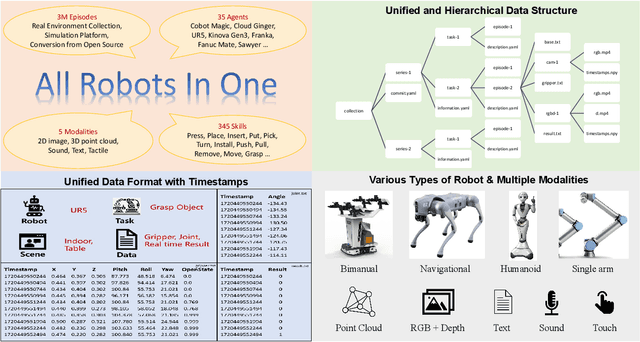

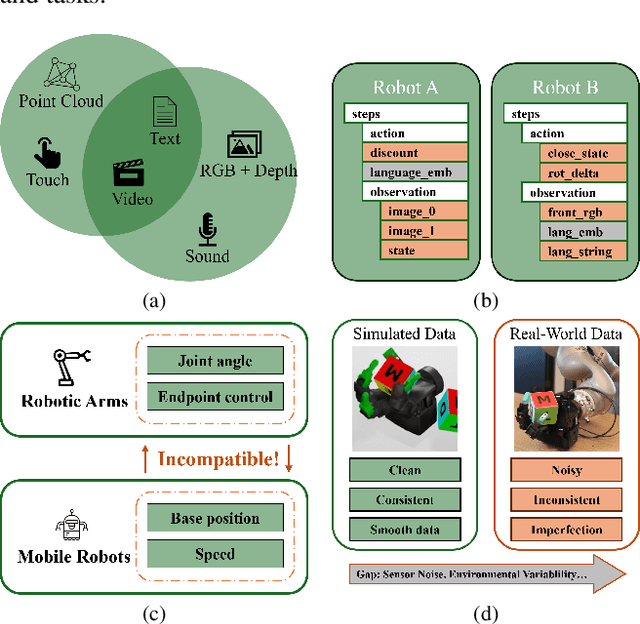

Abstract:Embodied AI is transforming how AI systems interact with the physical world, yet existing datasets are inadequate for developing versatile, general-purpose agents. These limitations include a lack of standardized formats, insufficient data diversity, and inadequate data volume. To address these issues, we introduce ARIO (All Robots In One), a new data standard that enhances existing datasets by offering a unified data format, comprehensive sensory modalities, and a combination of real-world and simulated data. ARIO aims to improve the training of embodied AI agents, increasing their robustness and adaptability across various tasks and environments. Building upon the proposed new standard, we present a large-scale unified ARIO dataset, comprising approximately 3 million episodes collected from 258 series and 321,064 tasks. The ARIO standard and dataset represent a significant step towards bridging the gaps of existing data resources. By providing a cohesive framework for data collection and representation, ARIO paves the way for the development of more powerful and versatile embodied AI agents, capable of navigating and interacting with the physical world in increasingly complex and diverse ways. The project is available on https://imaei.github.io/project_pages/ario/
 Add to Chrome
Add to Chrome Add to Firefox
Add to Firefox Add to Edge
Add to Edge